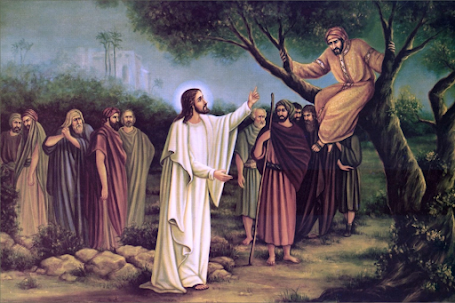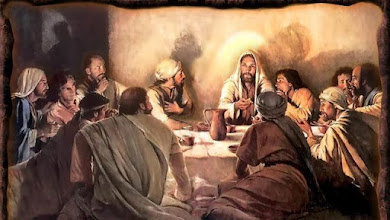(Audio)
As Jesus passed by John the Baptist pointed him out as the Lamb of God. One of the people who heard him and took it to heart was Andrew. Andrew followed Jesus, but for reasons he couldn't immediately articulate. Jesus asked what he and his companion were looking for and they could only respond by asking where he was staying. Perhaps they didn't immediately think of the prophecy of Isaiah about the one who would offer himself like a lamb as a sacrifice for sin.
He was oppressed, and he was afflicted,
yet he opened not his mouth;
like a lamb that is led to the slaughter,
and like a sheep that before its shearers is silent,
so he opened not his mouth (see Isaiah 53:7).
Yet it was the will of the Lord to crush him;
he has put him to grief;
when his soul makes an offering for guilt,
he shall see his offspring; he shall prolong his days;
the will of the Lord shall prosper in his hand (see Isaiah 53:10).
Jesus invited them to come and see where he was staying, implying that if they did they would see more than merely that particular detail. It seemed that it only took a day in his presence to realize that he was the promised Messiah. After an afternoon in the place where he was staying he was already so excited about Jesus that he couldn't help but begin inviting others to do what he had done, coming to see for themselves.
“Come after me, and I will make you fishers of men.”
At once they left their nets and followed him.
Andrew was the one who invited Peter, as we hear summarized in today's Gospel from Matthew. Together they were invited by Jesus to become something more than mere observers. They had been fishermen. They were to become fishers of men. They had discovered in Jesus the arrival of the Kingdom of God on earth. They were now meant to help to populate that Kingdom. They were to do what Andrew had already begun to do, inviting others to come and see for themselves how God was fulfilling his promise to send a Messiah and a Savior into the world.
Most people need to have Jesus pointed out to them because most of aren't looking for our Messiah to be a lamb of sacrifice. We typically prefer someone who could enter the scene with unconquerable strength in order to set things right. But external solutions will always leave the deepest inner wounds unhealed. We need more than we know we need. And we are not comfortable admitting this, even to ourselves. We know how the lion of Judah can be useful and what he might do for the world. But it is only in the healing presence of Jesus himself where our need for the lamb of God becomes evident.
We can learn from Andrew how to follow in his footsteps as fishers of men. We don't need to have all of the answers right away. Jesus is already appealing enough that many people will be ready to come and see if we invite them to do so. And if they do, Jesus is more than capable of taking care of the rest. It is hard for us to explain to others their need for a lamb of sacrifice. But we can tell them that is what we ourselves found in Jesus and invite them to come and see for themselves. He can be the one who makes it make sense for them. Time with him is what it typically takes to make it click.
How beautiful are the feet of those who bring the good news!

.jpg)















